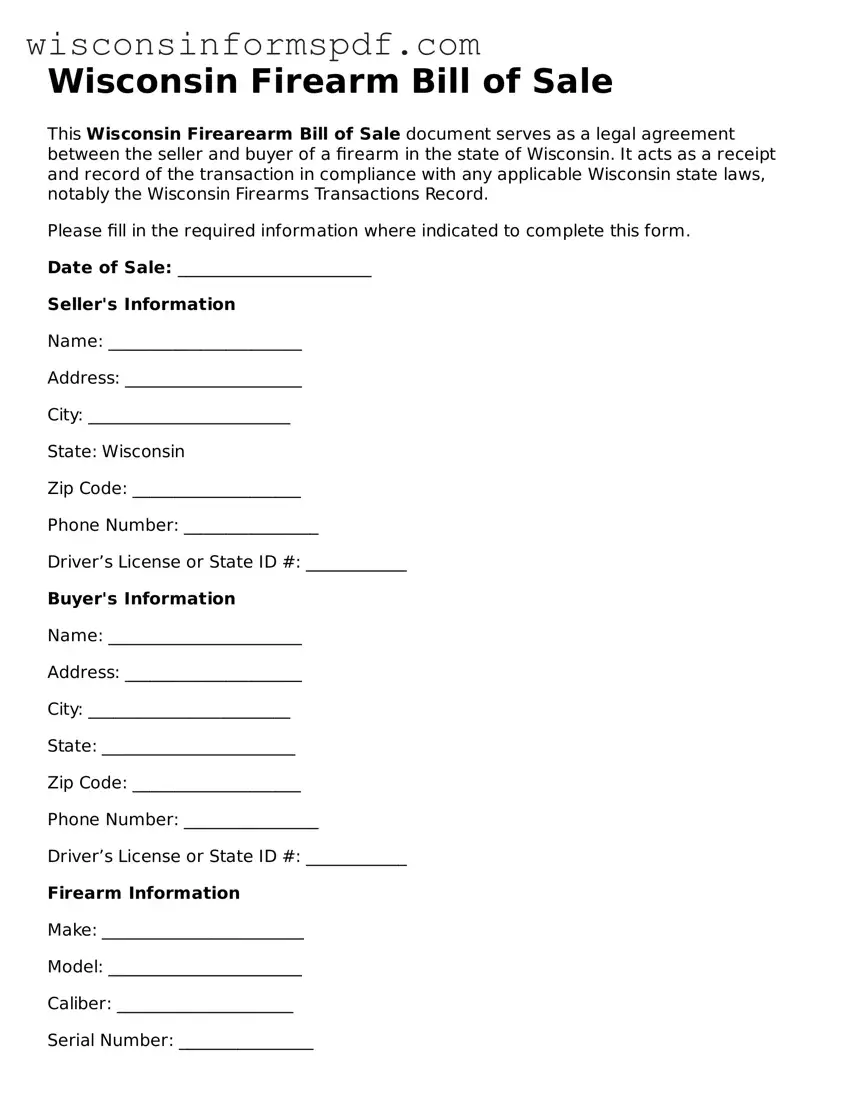Fillable Firearm Bill of Sale Document for Wisconsin
The Wisconsin Firearm Bill of Sale form is an important document used during the sale or purchase of a firearm in the state of Wisconsin. This form records the details of the transaction, providing proof of the change in ownership of the firearm. It serves as a crucial piece of documentation for both the seller and the buyer.
Create My Form

Fillable Firearm Bill of Sale Document for Wisconsin
Create My Form

Create My Form
or
Click for Firearm Bill of Sale
Want to finish this form ASAP?
Edit Firearm Bill of Sale online without printing or scanning.